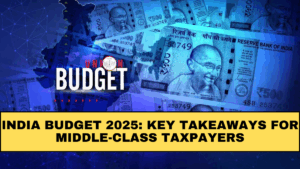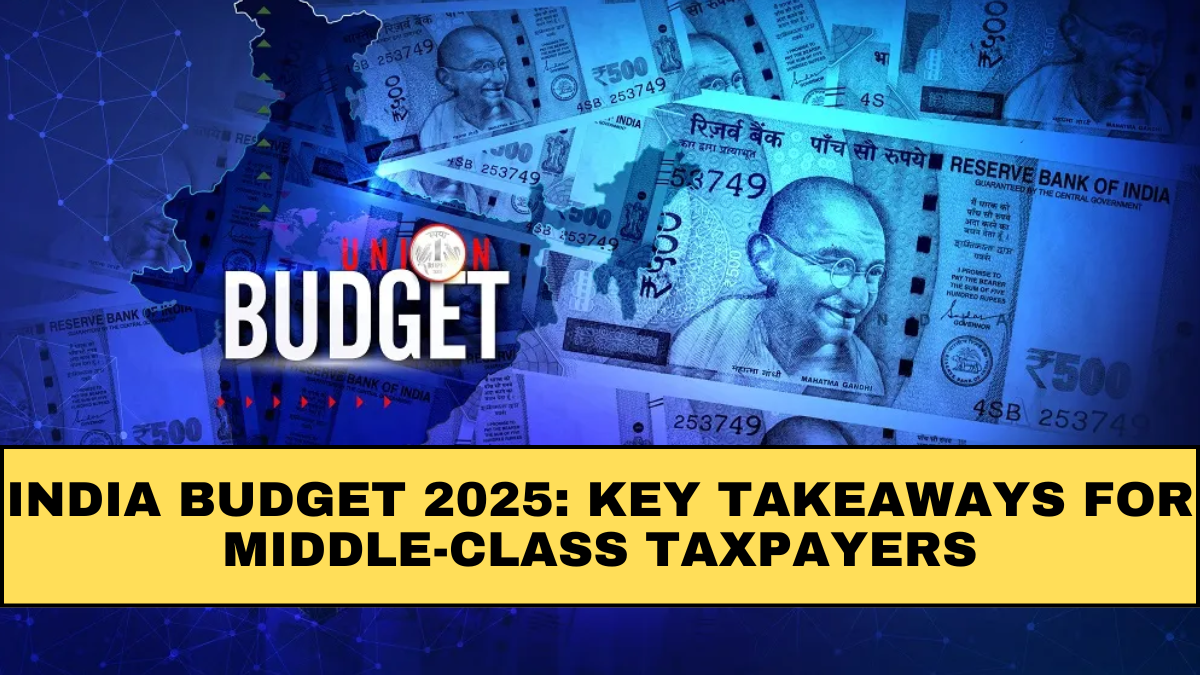India’s Budget 2025 has captured nationwide attention, particularly among middle-class taxpayers eager to understand its impact on personal finances. The government has introduced several tax changes and incentives aimed at promoting savings, investments, and economic growth while easing financial burdens on the average household. With inflationary pressures and rising costs of living, the 2025 budget is seen as a crucial roadmap for both taxpayers and businesses.
This budget reflects a balance between revenue generation and economic stimulus. It focuses on strengthening infrastructure, promoting digital finance, and incentivizing investments in renewable energy and technology-driven sectors. For middle-class families, the measures promise relief through revised tax slabs, deductions, and new schemes designed to increase disposable income while encouraging prudent financial planning.

Key Highlights of India Budget 2025
Income Tax Revisions
One of the most anticipated changes in India Budget 2025 is the revision of income tax slabs. The government has introduced adjustments to reduce tax burdens for individuals in the middle-income bracket. Enhanced exemptions and rebates aim to ensure that taxpayers can save more while maintaining compliance with fiscal requirements.
Increased Standard Deductions
Standard deductions for salaried employees have been revised upward. This change reduces taxable income automatically, allowing middle-class taxpayers to retain more of their earnings. Additionally, deductions for medical insurance premiums and education loans have been improved, aligning with household expenditure patterns.
Incentives for Investments
The 2025 budget encourages long-term savings and investments. Contributions to retirement funds, mutual funds under specific schemes, and government bonds are eligible for enhanced deductions. These tax changes are designed to promote financial literacy and wealth accumulation among the middle class.
Digital Finance and Ease of Compliance
To simplify tax filing, the government has expanded digital reporting tools. Online portals, pre-filled forms, and AI-powered assistance aim to reduce errors and improve efficiency. Middle-class taxpayers can now complete returns faster, minimizing compliance costs and delays.
Support for Affordable Housing
The budget includes incentives for first-time homebuyers, including deductions on home loan interest and principal repayment. This measure supports the middle class by making property ownership more attainable while stimulating the real estate sector.
Education and Skill Development Schemes
India Budget 2025 has allocated funds for scholarships, skill-building programs, and digital learning initiatives. These programs aim to empower the youth and working professionals by equipping them with the knowledge and tools needed for emerging industries.
Healthcare and Insurance Benefits
Healthcare deductions have been improved under the budget, with higher limits on premium payments for self and family coverage. Tax relief is also offered for preventive health measures, encouraging taxpayers to invest in wellness and reduce future medical costs.
Focus on Renewable Energy
In line with global sustainability goals, the budget offers incentives for investing in solar panels, electric vehicles, and energy-efficient appliances. Tax deductions and subsidies encourage households and businesses to adopt environmentally friendly practices, while also stimulating the green economy.
Small Business and MSME Support
For entrepreneurs and small businesses, India Budget 2025 provides reduced tax rates, simplified filing procedures, and access to low-interest loans. This not only supports finance growth but also encourages innovation and entrepreneurship across sectors.
Impact on Middle-Class Taxpayers
The middle class stands to benefit from reduced tax liabilities, enhanced deductions, and access to new investment opportunities. Families with salaried income can save more, plan for children’s education, and manage household expenses more effectively. Additionally, tax incentives for renewable energy adoption and health coverage provide long-term financial relief.
The budget also promotes financial inclusion through digital banking initiatives, allowing taxpayers from Tier-2 and Tier-3 cities to participate in savings schemes, government bonds, and online financial instruments. These measures reflect the government’s intent to make finance management simpler, more transparent, and inclusive.
Key Takeaways
-
Reduced Tax Burden: Adjusted slabs and higher deductions ease the pressure on middle-class income.
-
Incentives for Investments: Encouragement of long-term savings promotes wealth accumulation.
-
Affordable Housing Benefits: Tax relief for homebuyers improves access to real estate.
-
Healthcare Support: Higher deduction limits reduce out-of-pocket expenses.
-
Digital Simplification: Online tools make compliance faster and less error-prone.
Conclusion
India Budget 2025 delivers a balanced approach to easing financial burdens on the middle class while promoting sustainable economic growth. With revised tax changes, enhanced deductions, and incentives for investment, healthcare, and renewable energy, middle-class taxpayers are better positioned to save, invest, and plan for the future. The budget strengthens digital finance systems, simplifies compliance, and opens avenues for long-term wealth creation, making it a pivotal moment for individuals and businesses alike.
FAQs
What are the major tax changes in India Budget 2025?
The budget revised income tax slabs, increased standard deductions, and expanded exemptions for middle-class taxpayers.
Are there benefits for first-time homebuyers?
Yes, deductions on home loan interest and principal repayment have been enhanced.
How does the budget support healthcare expenses?
Tax deductions on medical insurance premiums and preventive health measures have been increased.
Does the budget encourage investments?
Yes, contributions to retirement funds, mutual funds, and government bonds are eligible for enhanced deductions.
Will digital tools simplify tax filing in 2025?
Yes, online portals, pre-filled forms, and AI assistance help make tax compliance faster and error-free.
